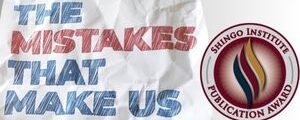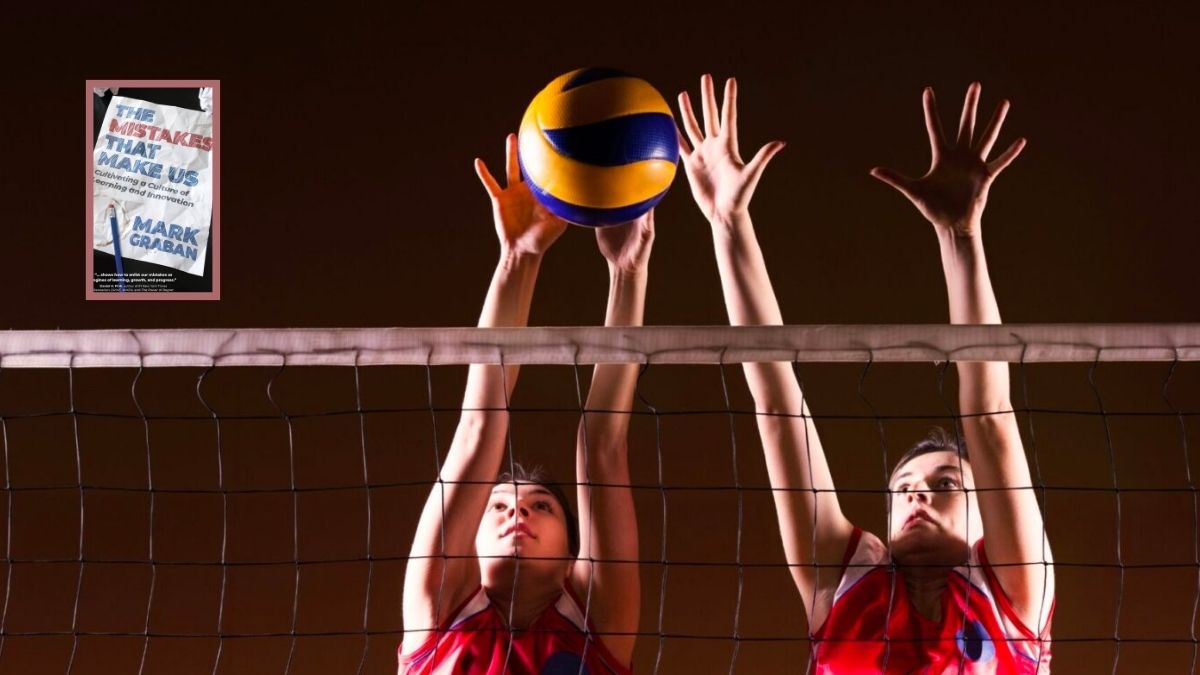This article caught my eye the other day:
‘We’re scientists right now’: Wisconsin volleyball’s unconventional path to success
I love this mindset from Wisconsin volleyball coach Kelly Sheffield:
“Wisconsin’s coach sees things eclectically. He doesn’t believe there’s a limit to discoverable answers in the game. Think like a scientist, Sheffield tells his team, over and over and over again. “Sometimes you’re testing things out and it’s not always going to be perfect,” says junior Anna Smrek, the Badgers’ 6-foot-9 – that’s correct, 6-foot-9 – middle blocker/right side hitter. “It’s kind of like a hypothesis. You’re working things out. It’s not your statement yet, right?”
⭐ ⭐ ⭐ ⭐ ⭐
Another player says,
“No idea is beyond a try. “Putting us in spots where we may be uncomfortable,” Robinson says, “is where we grow.””
Wisconsin Volleyball Coach Kelly Sheffield and his team exemplify a powerful approach to learning and improvement, one that echoes themes from my latest book, The Mistakes That Make Us: Cultivating a Culture of Learning and Innovation. Sheffield’s philosophy isn’t just for sports; it’s a blueprint for success in any field, including the workplace.
Thinking Like Scientists
The idea of thinking like a scientist, as Sheffield advocates, is pivotal. In volleyball, as in business, there isn’t a one-size-fits-all answer. The continuous pursuit of discoverable answers parallels the business world’s dynamic challenges. When junior Anna Smrek speaks of volleyball strategies as hypotheses, she’s highlighting a key aspect of the scientific method: experimentation.
Cultivating a Culture of Learning
In the book, I discuss how embracing mistakes as learning opportunities rather than setbacks fosters a culture of innovation. This is mirrored in Sheffield’s coaching. Encouraging players to test new approaches without the fear of immediate perfection allows for a deeper understanding of their capabilities and strategies. This approach can be transformative in the workplace, where encouraging experimentation can lead to significant breakthroughs.
Embracing Discomfort for Growth
Robinson’s insights about being put in uncomfortable spots resonates with one of the core messages of my book: growth often occurs at the edges of our comfort zones. In business, stepping into unfamiliar territories, be it a new project or a novel way of thinking, can be the catalyst for personal and professional growth.
Practical Application in the Workplace
So, how can we apply these lessons from the volleyball court to our daily work lives? Here are a few possible takeaways:
- Foster a Hypothesis-Driven Environment: Encourage teams to approach tasks and challenges as experiments. This means setting up hypotheses, trying out new methods, and analyzing results without prejudice.
- Normalize the Learning Process: Mistakes should be viewed as part of the learning curve, not as failures. Create a safe space for employees to share their ‘failed experiments’ and the lessons learned from them.
- Encourage Diverse Thinking: Just as Sheffield doesn’t limit his team to traditional volleyball strategies, encourage your team to bring in diverse perspectives and solutions. This could be through cross-functional teams or brainstorming sessions that welcome unconventional ideas.
- Reward Curiosity and Courage: Recognize and celebrate when team members step out of their comfort zones. This could be as simple as acknowledging their efforts in team meetings or providing platforms for them to share their experiences.
In conclusion, the experimentalist mindset championed by Coach Sheffield and embraced by his players at Wisconsin is not just a sports strategy; it’s a powerful tool for personal and organizational growth. By adopting this mindset, we can cultivate a culture of continuous learning and innovation in our workplaces, just as I discuss in The Mistakes That Make Us.
What do you think? Please post a comment to share your thoughts and experiences.



